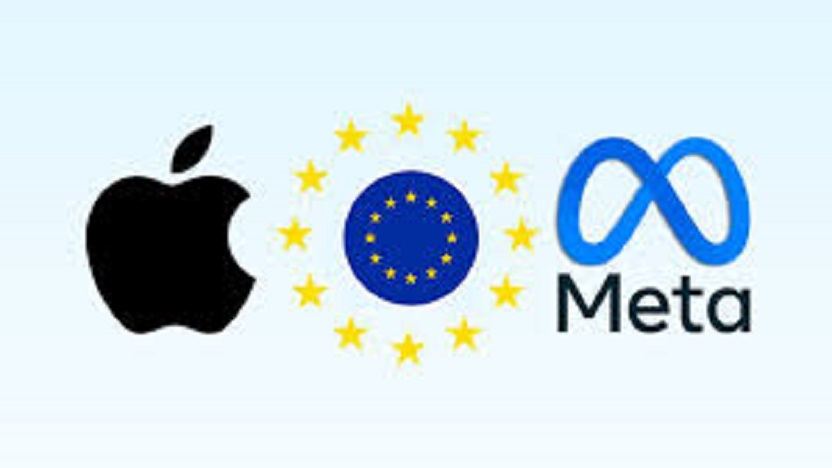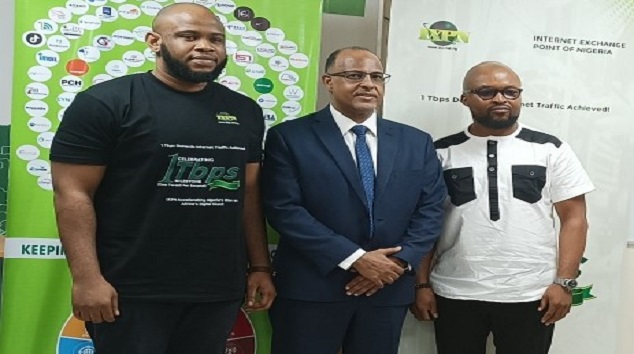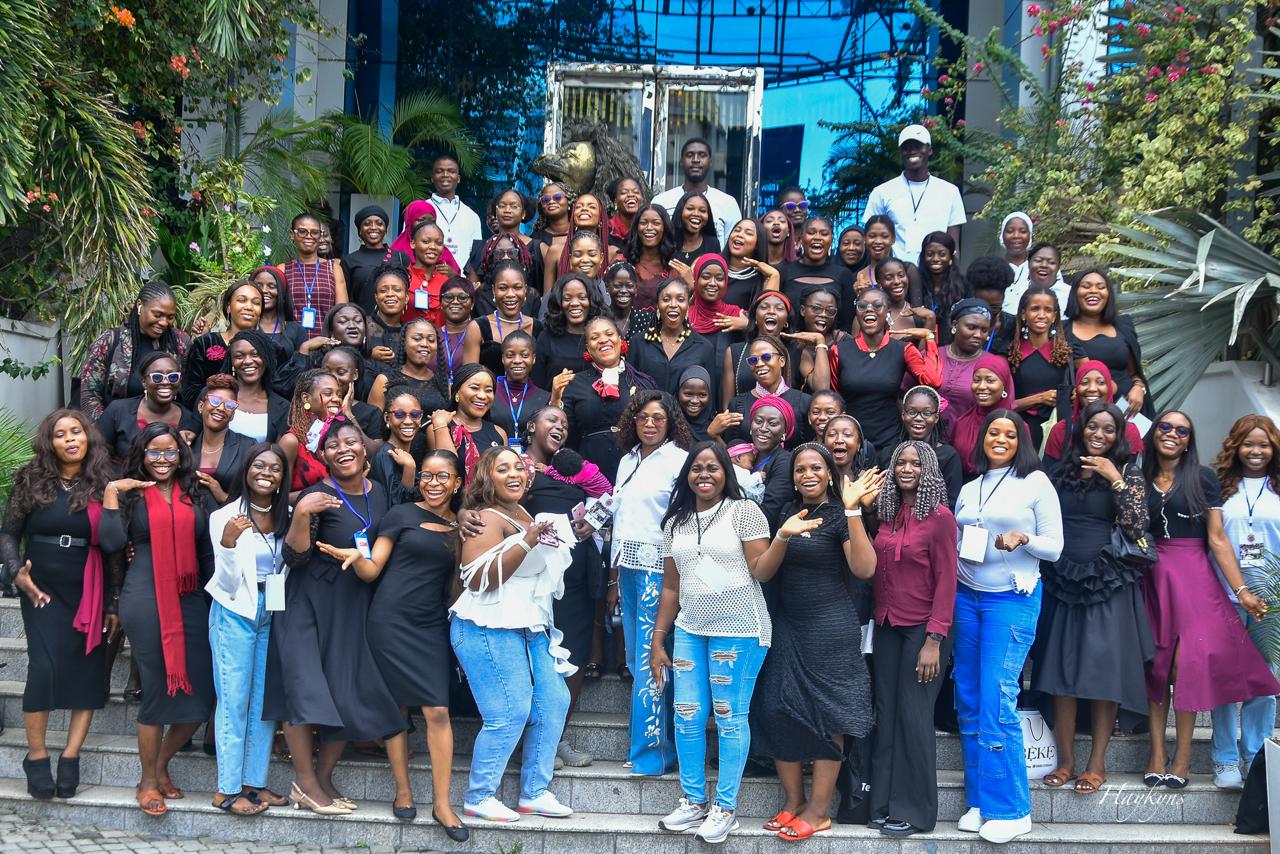Telecom
SERAP Asks Court to Declare FG’s ‘Plan to Monitor WhatsApp Messages Illegal’

Socio-Economic Rights and Accountability Project (SERAP) has filed a lawsuit against President Muhammadu Buhari, asking the court to “declare illegal and unconstitutional the plan by the administration to track, intercept and monitor WhatsApp messages, phone calls, and text messages of Nigerians and other people, as it severely threatens and violates the right to the preservation of privacy.”

The suit followed the proposal in the Supplementary Appropriation Act signed in July 2021 to spend N4.87bn to monitor private calls and messages. The amount is part of the N895.8bn supplementary budget approved by the National Assembly.
In the suit number FHC/ABJ/CS/1240/2021 filed last Friday at the Federal High Court in Abuja, SERAP is seeking: “an order of perpetual injunction restraining President Buhari and any other authority, persons or group of persons from unlawfully monitoring the WhatsApp messages, phone calls and text messages of Nigerians and other people.”
SERAP is also seeking “a declaration that any monitoring of WhatsApp messages, phone calls and text messages is oppressive and draconian, as it threatens and violates sections 37 and 39 of Nigerian Constitution 1999 [as amended]; Article 9 of the African Charter on Human and Peoples’ Rights; and Articles 17 and 19 of International Covenant on Civil and Political Rights, to which Nigeria is a state party.”

According to the group, the plan to monitor WhatsApp messages, phone calls and text messages is an arbitrary interference by the administration into respect for family and private life, the home, and correspondence.
“The Buhari administration has legal obligations to protect Nigerians and other people against arbitrary interference and violations of their human rights. Monitoring of WhatsApp messages, phone calls and text messages would grant free rein to government agencies to conduct mass surveillance of communications of people,” it said.
“The mere threat of mass surveillance, even when secret, coupled with the lack of remedy, can constitute an interference with human rights, including the rights to privacy, freedom of expression, peaceful assembly and association.
“Privacy and expression are intertwined in the digital age, with online privacy serving as a gateway to secure exercise of the freedom of opinion and expression. Therefore, targets of surveillance would suffer interference with their rights to privacy and freedom of opinion and expression whether the effort to monitor is successful or not.”
Joined in the suit as respondents are the Minister of Justice and Attorney General of the Federation, Abubakar Malami (SAN) and the Minister of Finance, Budget and National Planning, Zainab Ahmed.
The suit filed on behalf of SERAP by Kolawole Oluwadare and Kehinde Oyewumi, its lawyers read in part: “The powers to conduct arbitrary, abusive or unlawful surveillance of communications may also be used to target political figures and activists, journalists and others in the discharge of their lawful activities.”
“Any spending of public funds should stay within the limits of constitutional responsibilities, and oath of office by public officers, as well as comply with Chapter 2 of the Nigerian Constitution relating to fundamental objectives and directive principles of state policy.
“The lack of any safeguards against discriminatory decision-making, and access to an effective remedy shows the grave threats the purported plan poses to constitutionally and internationally recognized human rights.
“Section 37 of the Nigerian Constitution and Article 17 of the International Covenant on Civil and Political Rights provide for the right to freedom from arbitrary or unlawful interference with privacy and correspondence, communications and private data.
“Section 39 of the Nigerian Constitution and Article 19 of the Covenant also guarantee the right of everyone to hold opinions without interference and to seek, receive and impart information and ideas of all kinds, regardless of frontiers and through any media.
“The UN General Assembly has condemned unlawful or arbitrary surveillance and interception of communications as ‘highly intrusive acts’ that interfere with fundamental human rights (see General Assembly resolutions 68/167 and 71/199).
“Interference with privacy through targeted surveillance is designed to repress the exercise of the right to freedom of expression. Surveillance of journalists, activists, opposition figures, critics and others simply exercising their right to freedom of expression – would lead to violations of other human rights.
“Targeted surveillance creates incentives for self-censorship and directly undermines the ability of journalists and human rights defenders to conduct investigations and build and maintain relationships with sources of information.”
SERAP is also seeking the following reliefs:
A declaration that monitoring of WhatsApp messages, phone calls and text messages of Nigerians and other people is inconsistent with the principles of legality, necessity, and proportionality and amounts to threat and infringement on the rights to private and family life, access to correspondence, and freedom of expression and the press guaranteed under sections 37 and 39 of Nigeria Constitution, 1999; Article 9 of the African Charter on Human and Peoples’ Rights, and Articles 17 and 19 of International Covenant on Civil and Political Rights.
A declaration that the act of the Defendants budgeting N4.87bn of public money to monitor WhatsApp messages, phone calls and text messages of Nigerians and other people is unlawful and a violation of the rights to private and family life, access to correspondence, and freedom of expression and the press.
An order setting aside the budget line of N4.87bn to monitor WhatsApp messages, phone calls and text messages of Nigerians and other people for being inconsistent and incompatible with constitutional provisions, and international human rights treaties.
An order mandating the 1st Respondent to redirect public funds in the sum of N4.87bn budgeted to monitor WhatsApp messages, phone calls and text messages of Nigerians and other people to improve the working conditions of healthcare practitioners and improve public healthcare facilities across Nigeria.
And for such further order or orders that the court may deem fit to make in the circumstances.
No date has been fixed for the hearing of the suit.
Telecom
EU Fines Apple and Meta €700m in Landmark Digital Markets Act Enforcement

European Commission has imposed landmark fines on tech giants Apple and Meta in the first enforcement actions under the Digital Markets Act (DMA), a new regulatory framework designed to enhance consumer choice and ensure fair competition in the digital economy.

Apple was fined €500 million (£428.3 million) for restricting app developers from guiding users to alternative purchasing options outside its App Store, a practice the commission said limited access to more affordable offers and stifled competition.
The commission has ordered Apple to amend its App Store policies by late June to comply with the DMA, warning that failure to do so could result in further daily penalties.
Meta, the parent company of Facebook and Instagram, was fined €200 million (£171.3 million) over its ‘pay or consent’ model, which required European Union users to either pay for an ad-free experience or consent to personalised advertising.
The commission found that this model failed to offer users a genuine choice and violated rules governing data processing and user consent. Meta’s revisions to this model, made in November 2024, are currently under review by the EU.
Both companies have pushed back against the commission’s decisions. Apple announced plans to appeal, stating that the ruling was unjust and detrimental to user privacy and security. “Today’s announcements are yet another example of the European Commission unfairly targeting Apple in a series of decisions that are bad for the privacy and security of our users, bad for products, and force us to give away our technology for free,” the company said.
Meta also criticised the EU’s approach, claiming that it imposes undue burdens on successful American companies while allowing competitors from China and Europe to operate under different standards. Joel Kaplan, Meta’s chief global affairs officer, said, “This isn’t just about a fine; the Commission forcing us to change our business model effectively imposes a multi-billion-dollar tariff on Meta while requiring us to offer an inferior service.”
The fines are part of a broader effort by the EU to clamp down on dominant digital platforms, known as ‘gatekeepers’, and ensure they do not abuse their market positions.
The commission has also concluded an investigation into Apple’s compliance with DMA rules on browsers and default apps, acknowledging changes that have opened up more space for competition.
However, Apple remains under scrutiny for its handling of alternative app marketplaces, which could attract additional penalties.
The enforcement measures may further strain transatlantic relations, with some in the United States, including former President Donald Trump’s administration, criticising the EU’s digital regulations as disproportionately targeting American firms.
Despite the pushback, the European Commission insists that the DMA is enforced impartially to safeguard consumer rights and foster a level playing field in the digital market.
Telecom
Nigeria Hits 1 Terabit Internet Traffic Milestone

IXPN, Nigeria’s leading Internet Exchange Point, is proud to announce a landmark achievement: crossing 1 Terabit per second (1Tbps) in aggregate peak domestic internet traffic for the first time.

This milestone signifies a major leap forward in developing Nigeria’s internet infrastructure and underscores the critical role of local internet infrastructure in driving economic growth, innovation, and connectivity for millions of Nigerians.
“This milestone is more than just a number. It’s a symbol of Nigeria’s digital maturity and our united strides towards becoming a tech-driven nation. By keeping local internet traffic within Nigeria, we reduce costs, improve speeds, and ensure our digital economy thrives with homegrown infrastructure.” said Muhammed Rudman the CEO of IXPN.
“Achieving 1 Tbps is a significant victory for Nigeria’s ICT ecosystem, a breakthrough for domestic internet traffic. It serves as a catalyst, enabling millions of Nigerians to enjoy faster, more affordable, and resilient internet connectivity.”

1 Terabit per second is a game-changer for Africa’s most populous country. To put it in perspective:
- Mega Video Calls: A speed of 1 Tbps can support over 1 million concurrent Zoom calls, allowing students, entrepreneurs, and professionals to connect and drive Nigeria’s digital revolution.
- Streaming Frenzy: With 1 Tbps, more than 200,000 people can stream HD Nollywood films or movies on Netflix simultaneously without any buffering or interruptions.
- Data Superpower: This speed enables the transfer of the entire contents of 50,000 smartphones—including photos, apps, and videos—in just one second.
For Nigeria, hitting this milestone means reducing reliance on international bandwidth, decreasing latency for local services, and strengthening our position as Africa’s digital heartbeat. This milestone is a testament to the power of collaboration, innovation, and the relentless pursuit of a faster, more connected Nigeria.
This accomplishment goes beyond technical advancements; it has significant economic implications. By encouraging local traffic exchange, IXPN reduces dependency on international bandwidth, leading to:
- Significant Cost Savings: By utilizing local data exchange, Nigerian businesses can save millions of dollars annually on international bandwidth fees.
- Enhanced Speed and Connectivity: With reduced latency, users experience smoother streaming, gaming, and real-time services, enhancing their overall online experience.
- Increased Resilience: Strengthening Nigeria’s internet infrastructure protects against global disruptions, ensuring consistent access to vital services such as healthcare and education.
- Improved Efficiency: Optimizes digital services like fintech, edtech, e-commerce, and e-health, propelling innovation and growth in these sectors.
Surveys conducted among IXPN members over the years have shown a growing percentage of local internet traffic in Nigeria. A recent report indicates that some connected members can localize or domesticate up to 70% of their internet traffic through IXPN.
“As more content providers, ISPs, banks, and public institutions localize their traffic through the IXP, end users benefit directly,” added Raphael Iloka (Marketing Manager). “We’re not just routing data — we’re building the foundation for Nigeria’s digital economy.”
The 1 Tbps peak highlights the remarkable impact of collaboration among all stakeholders. This milestone is a significant achievement not only for IXPN, but for the entire ICT ecosystem. IXPN deeply appreciates the vital contributions of all stakeholders involved.
To our Members and Partners: Your trust and participation have been essential to our growth. Together, we have established a hub where networks can interconnect, innovate, and thrive.
To the Government and Regulators: We express our sincere appreciation to the Nigerian Communications Commission (NCC) for all its support over the years and its vision of a digitally inclusive Nigeria.
To our Team: We extend our gratitude to our engineers, network administrators, and all other staff who work tirelessly behind the scenes to push boundaries.
To the Global Community: We are grateful to partner organizations like the Internet Society (ISOC). Your support and advocacy in domestic peering empower us all.
Reaching 1 Tbps is just the beginning. As data demands skyrocket with AI, IoT, 5G, and immersive technologies, IXPN is committed to staying ahead of the curve. Here’s how:
- Scaling Infrastructure: We are investing in advanced hardware and software to support multi-terabit capacities.
- Enhancing Resilience: We are strengthening our network to ensure uptime, security, and adaptability in an ever-changing digital landscape.
- Empowering Underserved Communities: We aim to expand our reach to rural areas, bridging the digital divide, and supporting agritech, edtech, and telehealth.
- Strengthening Africa’s Digital Sovereignty: Partnering with regional IXPs to keep Africa’s data on the continent.
Telecom
TD Africa’s TecHERdemy Empowers 400 Women to Lead in Tech

On April 17, 2025, the atmosphere at Yudala Heights was electric with pride, hope, and inspiration as TD Africa, the leading tech distribution company in Sub-Saharan Africa, celebrated the graduation of 400 young Nigerian women from its flagship TecHERdemy program.

Over the past six months, these incredible women immersed themselves in rigorous, hands-on training in Cybersecurity, Data Science, Artificial Intelligence, and Software Development. They are now confidently stepping into the tech world, ready to make their mark.
The event brought together top voices in the industry, including Dr. Leo Stan Ekeh, Chairman of the Zinox Group, who commended the graduates for their resilience and brilliance. In his keynote speech, he shared a hopeful vision for Africa’s future, calling these young women “the pioneers of a new, inclusive era of tech leadership on the continent.”
Mrs. Chioma Ekeh, CEO of TD Africa, also delivered a heartfelt message, urging the graduates to let their values guide them as they navigate their careers.
“Hold tightly to your values. Let integrity guide your work, let innovation fuel your dreams, and let your impact speak louder than your résumé,” she encouraged.
The ceremony was filled with emotion as graduates shared their personal stories of transformation. One of them, Yetunde Kayode, now a certified data scientist, summed it up beautifully: “This program changed my life. I’m walking away empowered, skilled, and deeply grateful to Mrs. Ekeh and the TecHERdemy team for believing in us.”
Fifteen exceptional participants were also honoured for their outstanding performance and leadership during the program, reminding everyone that excellence comes in many forms.
TecHERdemy, which launched in November 2024, was built with a simple but powerful mission: to equip young Nigerian women with globally relevant digital skills and open doors to a tech career. But what happened over those six months went beyond just skills; it sparked a movement.
This graduation wasn’t just the end of a program. It was the beginning of a brighter, more inclusive future for tech in Africa.

 Telecom2 days ago
Telecom2 days agoDigital Transformation Remains Africa’s Gateway to Economic Advancement – Adumike

 Telecom2 days ago
Telecom2 days agoPAFON 2.0: Experts Discuss Pathways to Boost Financial Inclusion in Nigeria

 General News2 days ago
General News2 days agoEFCC Clarifies SCUML Certificate Misuse amid CBEX Ponzi Scheme Scandal

 Telecom1 day ago
Telecom1 day agoMTN Nigeria Faces Class Action Lawsuit over Alleged Data Mismanagement

 E-Financial2 days ago
E-Financial2 days agoCBN, NGX Group Defend Economic Reforms at Nasdaq

 General News1 day ago
General News1 day agoFG to Introduce New Tax Credit Scheme to Replace Pioneer Status Incentive

 E-Financial1 day ago
E-Financial1 day agoFCMB Capital Markets Leads ₦11.85bn GLNG Bond for LNG Plant Expansion

 Telecom1 day ago
Telecom1 day agoNigeria Hits 1 Terabit Internet Traffic Milestone



























